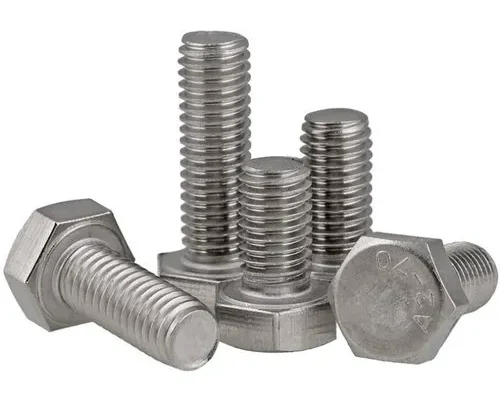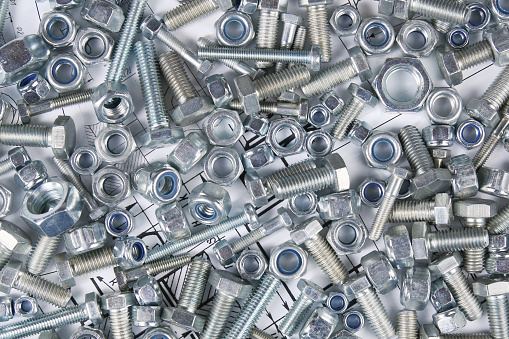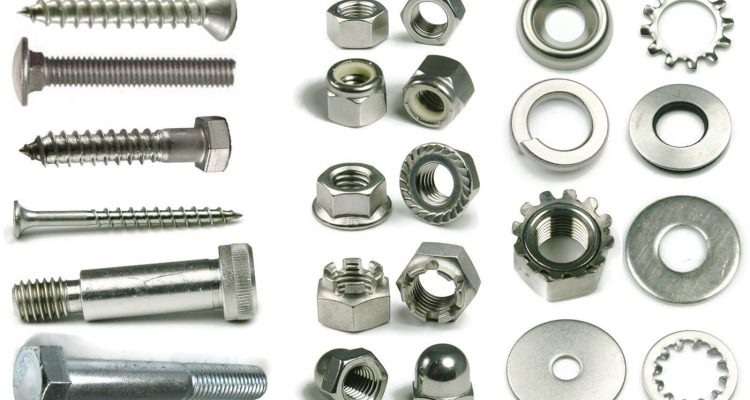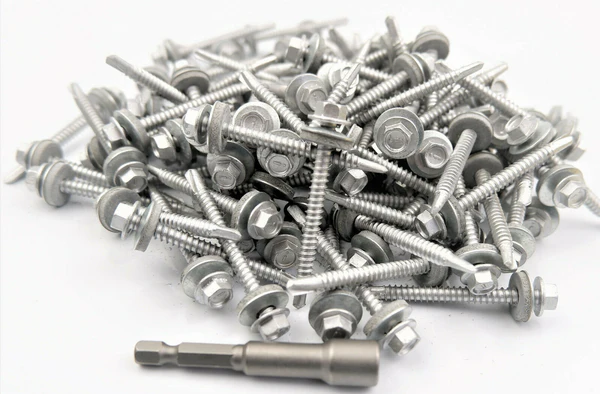
5 Custom Bolt Standards
Custom bolt standards vary by specifications like length, thread type, and material, adapting to specific industry needs, enhancing performance, and ensuring safety in specialized applications
ISO Standard Bolts
ISO standard refers to the bolts that are manufactured conforming to the prescribed international standards to have uniformity and compatibility in foreign and domestic supplies. Custom bolts that confirm to the ISO standards are created to provide the desired compatibility across the international market. The ISO standards provide various dimensions and consistent tolerances that enhance uniformity in their mechanical properties.
Materials and Grades
There are various materials that custom bolts made under ISO standards are made up of. Some of these materials include; carbon steel, stainless steel, and alloy steel. These materials are grouped into the various grades stipulated in ISO standards. For custom bolts made of carbon steel, grade ISO 898-1 is used, and grade ISO 3506 s used for those made from stainless steel. The clarifications are useful for various purposes, as they provide suitable bolt material that resist specific environment and load.
Dimension Specifications
The bolt dimensions are specified in ISO 4014 for hexagon head bolt and in ISO 4762 for the socket cap screw products. The specification stipulates the dimensions and properties that include the bolt length, bolt head size, pitch, diameter, and thread amongst others. The tolerances are specified to ensure that bolts are accepted universally in any of the assemblies that are done in adherence to their ISO standards.
Strength Properties
The bolts have passed the prescript tensile test, yield analysis, and elongation. Under ISO standard, the minimum tensile strength acceptable for Grade 8.8 bolt in the shear applicators is 800 MPa, while the yield limit is 640 Mpa. The yield limit should thus exceed the fastener tensile strength of 160 MPa. Through ISO standards, it is definite that the custom bolts are capable of withstanding the specific load conditions and environment without undergoing failure. Quality control is required for ISO standard bolts to prevent defects as the British Standard Manufacturer. The manufacturer is required to go through extensive inspection and testing of bolt properties including hardness and proof loading to ensure every bolt adheres to the ISO stipulations. Compliance ensures increased trust between the users of the bolts.

How To Accurately Assess The True Cost Of Fastener Use For Any Project
DIN Standard Bolts
The DIN standard bolts are stipulated by the German Institute for Standardization and are envisioned for robustness and precision in a variety of engineering activities. In other words, these requirements are focused on the conditions in which a bolt functions and must comply with specific attributes to ensure that a given machine performs optimally.
Function-Specific Standard Design
Various DIN standards cover a myriad of types of bolts, and as such, each type serves a specific purpose. For instance, DIN 933 details distance pieces that often require high torque but offer a high degree of fastening. Conversely, such pieces do not benefit from a similar degree of clamping force. Moreover, DIN 912 is a standard for socket head cap screws that provide fastening to rigid, yet limited space objects.
Material Variety
Bolts under the DIN standards are produced from a variety of steel components and several non-ferrous materials. The choice of a component is determined by the bolt’s function and the environment to which it will be exposed. The selection of steel for creating such fastenings may greatly vary as the mechanical properties determine the usage. For example, 8.8-grade steel is one of the most commonly used options as it offers a tensile strength of 800 MPa and a yield strength of 640 MPa.
Dimensional Accuracy
The primary purpose of a DIN bolt is the degree to which it meets its requirements and is standardized in terms of dimensions and tolerances. In other words, each bolt created under a given DIN standard complies with a large number of rigorous standards and does not deviate from the established dimensions. This precision enables them to be used in a large number of machinery while still guaranteeing proper fitting and the elimination of any incompatibility-related safety risks or malfunctions.
ANSI Standard Bolts
ANSI standard bolts, as set forth by the American National Standards Institute, play a critical role in ensuring safety and efficiency in a wide range of construction and engineering projects in the United States. They are specifically engineered to ensure a bolt is capable of surviving and withstanding the mechanical loads and environmental conditions for which it was designated.
Variety and Applications
There are a great many bolt types covered by ANSI standards, each for different applications. For instance, ANSI B18.2.1 covers square and hex bolts and screws, types commonly employed in construction for their durability and ease of integration. ANSI B18.3 covers socket cap, shoulder, and set screws, which are absolutely vital for applications in which high strength is needed in a confined area.
Materials and Performance
There is a range of materials used in the production of ANSI standard bolts, including carbon, alloy, and stainless steel, as well as a handful of more specialized materials. The grading of these bolts, denoted by Grade 2, 5, and 8 to list only a few, is intended to provide approximate values for the tensile and yield strengths of each bolt. For example, Grade 8 bolts are quenched and tempered and provide a minimum tensile strength of 150,000 psi.
Dimensional Standards and Quality Assurance
Accuracy of dimensions is ensured by the ANSI standards, as well as adherence to very strict tolerances. This maintains the proper fit of bolts in related products and ensures quality performance in their designated applications. Manufacturers must follow defined standards for dimensions, tolerances, and threading to maintain interoperability and functionality.
Compliance and Testing
Finally, to ensure compliance with these standards, tests of proof load, tensile strength, and fatigue are carried out on bolts. As a result, every single bolt is guaranteed to perform as expected for the loads it will endure, allowing for safety and quality in all engineering and structural applications.

Hardware bolts and nuts top view background
JIS Standard Bolts
JIS standard bolts are some of the most vital regulations set by the Japanese Industrial Standards Committee. These types of standards are required in the country’s main industrial sectors, including the automotive, electronics, and construction sectors. The JIS standards have many applications, and thus, they are fundamentally designed for both domestic and international markets. The critical feature of these standards is the highest degree of quality in terms of production and product instantiation.
Range and Specifications
The JIS standards set a wide range of bolt types, each for the tool’s specific purpose. One of the most common types found in these standards are JIS B 1180’s general configurations for hexagon-head bolts, screws, and nuts. The standard’s application encompasses all types of machines and engineering tasks. Each setting comes with various specifics, including the pitch of the bolt screwing, length, various dimensions of bolts, and other parts. All these specifics are intended to ensure the optimal precision of the standards used by engineers.
Material Grades and Properties
Most bolts on the market today are made from different grades of steel and other materials. The choice depends on the required properties, including tensile strength, firmness, and resistance to corrosion. One of the common grades of steel, Grades 8.8 of JIS standards, is very similar to the foreign screw grades of ISO and American National Standards Institute standards. The JIS Grade 8.8 line of bolts is excellent for most engineering purposes and demonstrates high capabilities in other categories.
Dimensional Tolerances
The dimensions of JIS standard bolts are such that they are tied to specific importance. These dimensions are needed for very specialized designs and manufacturing operations, which use bolts that need to fit very precisely. This requirement is added that a product made of a bolt retains its functional properties as long as possible.
Quality Control and International Competitiveness
Finally, JIS standard bolts are reliable due to the most professional quality control procedures. First, there are several checks, including dimensional checks of the parts that go for production, the quality of the materials used, and the mechanical properties of the bolts. In addition, the highest degree of compatibility is that the JIS standards of bolts are often the same as the International Organization for Standardization standards. The production of high-quality generators is much cheaper and therefore costs less than similar products manufactured in other countries.

Hebei Chengzhi Fastner Co., Ltd._Screws_Bolts_Anchors
GB Standard Bolts
GB (Guobiao) standards bolts is a pivotal part of the machinery used in a vast variety of industries in China, including infrastructure, automotive, and manufacturing. These standards define the properties or the bolts, ensuring that they are durable, reliable, and met the high demands of the industries. There are numerous GB standards that define different characteristics: GB 5783 defines the hexagon head bolts , which is one of the most commonly used bolts in construction and machinery due to its high load capacity. In general, GB standards reflects the great variety of bolt types, each of which is perfectly suited to different operational requirements.
Material and Strength Classification
GB standard bolts are typically made of various grades of steel, reflecting the broad mechanical properties of the bolts in terms of their tensile strength and yield strength. The classification, such as 8.8 grade which is often used in machinery, indicates the tensile strength equivalent of 800 MPa and yield strength equivalent for 640 MPa, which is commonplace for international standards as well. Such a broad classification system can ensure that GB standard bolts are strong and can be used in heavily loaded applications.
Precision Manufacturing
The production of GB standard bolts is highly regulated in terms of the preciseness fo its characteristics. The performance and the physical characteristics of the GB standard bolts are striction regulated, as the bolts are intended to be used in combinations and should be adaptable to the exact dimensions of equipment. As such, the manufactuing of the GB standard bows is complex and precise. The bolts are also intertwined in terms of their specifications through the quality control system – each bolt should exactly satisfy the requirements of specific standard. Compliance is confirmed by the tight of accrual to the specific standard and numerous tests and checks the bolts undergo.



